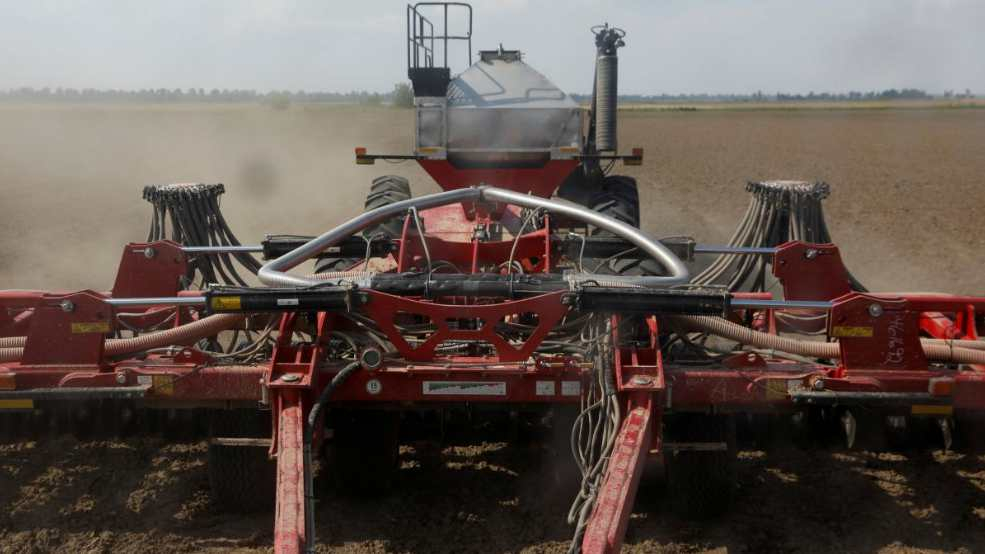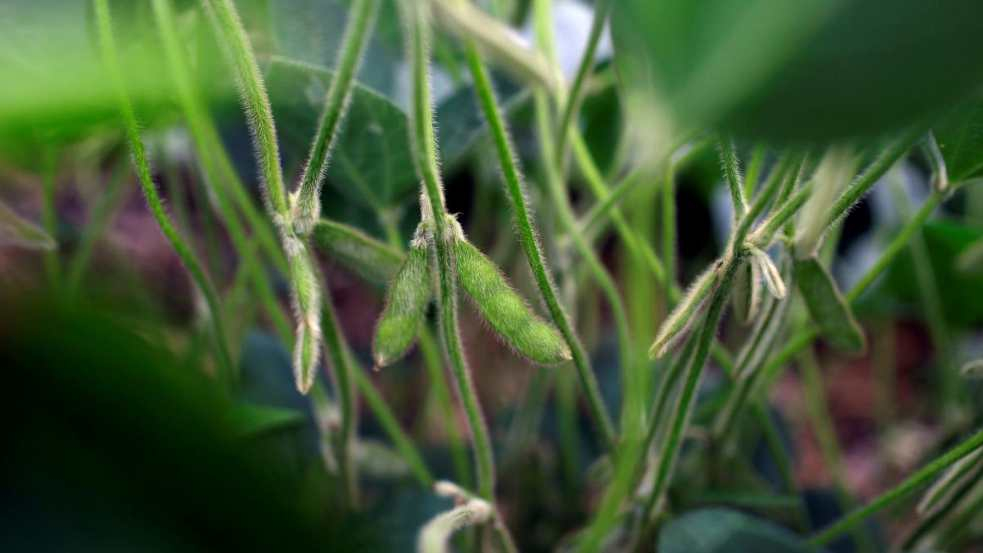
Business
11:02, 28-Aug-2018
US government to pay $4.7 billion in tariff-related aid to farmers
Updated
09:59, 31-Aug-2018
CGTN

The US Department of Agriculture said on Monday that its initial farm aid package under its "SOS" plan to rescue hurt farmers hit by retaliatory tariffs would include 4.7 billion US dollars in direct payments.
US' self-inflicted "trade-war" has left the country's Soyabean farmers most vulnerable, therefore, a huge chunk of federal government's direct payments would go to the Soyabean producing farmers, around 3.6 billion US dollars. That amounts to 1.65 US dollars per bushel multiplied by 50 percent of expected production according to Bill Northey, Undersecretary for Farm Production and Conservation .
China is the world's largest Soyabean importer, in 2017 China bought about 60 percent of US Soyabean exports, however, it has been largely out of the market since Trump administration forced a trade dispute on China.
The aid package, pledged at 12 billion US dollars in July, will also include payments for Sorghum of 86 cents per bushel multiplied by 50 percent of production, 1 cent per bushel of Corn, 14 cents per bushel of Wheat, and 6 cents per pound of Cotton.

Soybeans grow in a field on BJ Reeg's farm in Bellevue, Iowa, US, July 26, 2018. /Reuters Photo
Soybeans grow in a field on BJ Reeg's farm in Bellevue, Iowa, US, July 26, 2018. /Reuters Photo
Payments for Hog farmers will be 8 US dollars per pig multiplied by 50 percent of August 1 production, while dairy farmers will receive 12 cents per hundred weight of production.
"An announcement about further payments will be made in the coming months if warranted," Agriculture Secretary Sonny Perdue said.
Sign-up session will begin on September 4, to coincide with the 2018 harvest, and will end in January. Farmers will need to present production evidence to collect payments which are capped at 125,000 US dollars per person.
Other than direct aid, the program will also include 1.2 billion US dollars in purchases of commodities, including pork and dairy products, to be spread out over several months, Undersecretary for Marketing and Regulatory Programs Greg Ibach said.
"The specific commodities to be purchased are those that have been impacted by the unfair tariffs that have been imposed by other nations," he said.
The program will also include some 200 million US dollars for a trade promotion program to develop new markets.
The package has been seen as a temporary boost to farmers as the United States and China negotiate trade issues. It has divided Republicans, some of whom favor free trade and were troubled by what they viewed as the kind of welfare programs their party has traditionally opposed. It has also faced skepticism from some farmers, a key Trump vote bank.
"Short-term aid does not create long-term market stability," said Doug Schroeder, Illinois Soybean Growers vice chairman, in a statement after the announcement. "Producers need trade, not aid."
Source(s): Reuters

SITEMAP
Copyright © 2018 CGTN. Beijing ICP prepared NO.16065310-3
Copyright © 2018 CGTN. Beijing ICP prepared NO.16065310-3